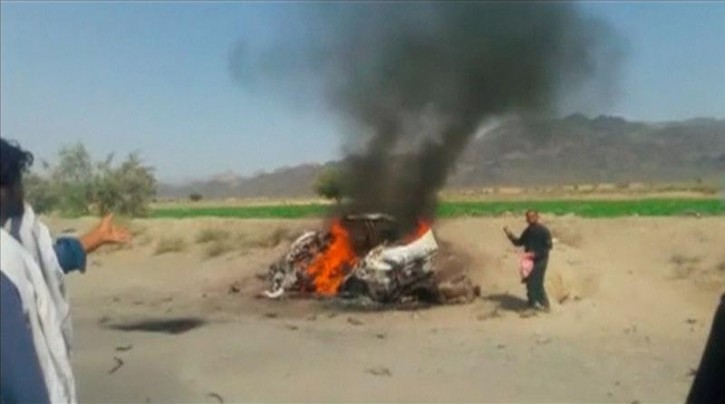Pakistan - Senior members of the Afghan Taliban met to choose a successor to their former leader Mullah Akhtar Mansour on Monday after U.S. President Barack Obama confirmed his death in a drone strike inside Pakistani territory at the weekend.
The Taliban themselves have made no official statement, but two senior members of the movement said Pakistani authorities had delivered Mansour’s badly burned remains for burial in the western city of Quetta.
Pakistani officials, however, denied handing over a body.
On a three-day visit to Vietnam, Obama called the death “an important milestone”, saying Mansour had rejected peace talks and had “continued to plot against and unleash attacks on American and Coalition forces”.
The president authorized the drone strike that killed Mansour in a remote region just on the Pakistani side of the border with Afghanistan on Saturday.
Pakistani authorities have said the attack was a violation of the country’s sovereignty and an official from the foreign ministry told the U.S. ambassador in Islamabad that the attack could “adversely impact” peace talks.
But reaction from Islamabad has otherwise been relatively muted and a number of questions remain over what exactly happened.
An undamaged Pakistani passport in the name of Wali Muhammad, which Pakistani authorities said contained a visa for Iran, was recovered next to the burned-out car at the scene of the attack and is believed to have belonged to Mansour.
The Taliban have set up a 10-member commission to try to establish how Mansour was picked out by the U.S. drones, sources within the group said.
They added that he had crossed into Pakistan from Iran, where he had been holding meetings with Iranian officials and Taliban leaders located there.
According to Taliban officials, the movement has set up to offices in Iran, which Mansour used to visit.
A spokesman for the Iranian foreign ministry was quoted on state media denying that such an individual had crossed the border from Iran to Pakistan at the time in question.
 A car is seen on fire at the site of a drone strike believed to have killed Afghan Taliban leader Mullah Akhtar in southwest Pakistan in this still image taken from video, May 21, 2016. REUTERS/via REUTERS TV
A car is seen on fire at the site of a drone strike believed to have killed Afghan Taliban leader Mullah Akhtar in southwest Pakistan in this still image taken from video, May 21, 2016. REUTERS/via REUTERS TV
“MILESTONE”
Although some individual Taliban members have said that Mansour was killed, the group’s leadership, keenly aware of the need to limit splits, has not issued its own confirmation, concentrating instead on naming a successor.
“The leadership is being very careful because one wrong step could divide the group into many parties like former mujahideen,” one Taliban official from the eastern province of Nangarhar said, referring to guerrilla leaders who fought the Soviets in the 1980s before splitting into warring factions.
Mansour’s number two Sirajuddin Haqqani, leader of the militant network blamed for a series of high-profile attacks in Kabul, and Mullah Mohammad Yaqoob, son of the movement’s late founder Mullah Mohammad Omar are among the main contenders.
Yaqoob initially opposed Mansour’s claim to the leadership when his father’s death was belatedly made public last year. Choosing a member of Mullah Omar’s family would be a means of building consensus, but one of the Taliban officials said Yaqoob was reluctant to take over.
Serious divisions emerged last year when it was confirmed that Mullah Mohammad Omar, the group’s founder, had been dead for two years, leaving his deputy Mansour in effective charge of the movement and open to accusations he deceived his commanders.
Haqqani, leader of an affiliated network blamed for a series of high-profile suicide attacks in Kabul, had the backing of Pakistan, while Yaqoob had support among members of the Afghan Taliban, one member of the shura said.
The killing of Mansour appears to have set back any prospect of a start to peace talks between the Taliban and the Western-backed government in Kabul.
However, Obama said they represented the only chance of ending decades of war in Afghanistan.
“The Taliban should seize the opportunity to pursue the only real path for ending this long conflict - joining the Afghan government in a reconciliation process that leads to lasting peace and stability,” he said.
He stressed that the operation against Mansour did not represent a shift in U.S. strategy in Afghanistan or a return to active engagement in fighting, following the end of the international coalition’s main combat mission in 2014.
The U.S. currently has 9,800 troops in Afghanistan and a decision is expected later this year on whether to stick with a timetable that would see their numbers cut to 5,500 by the start of 2017.
















